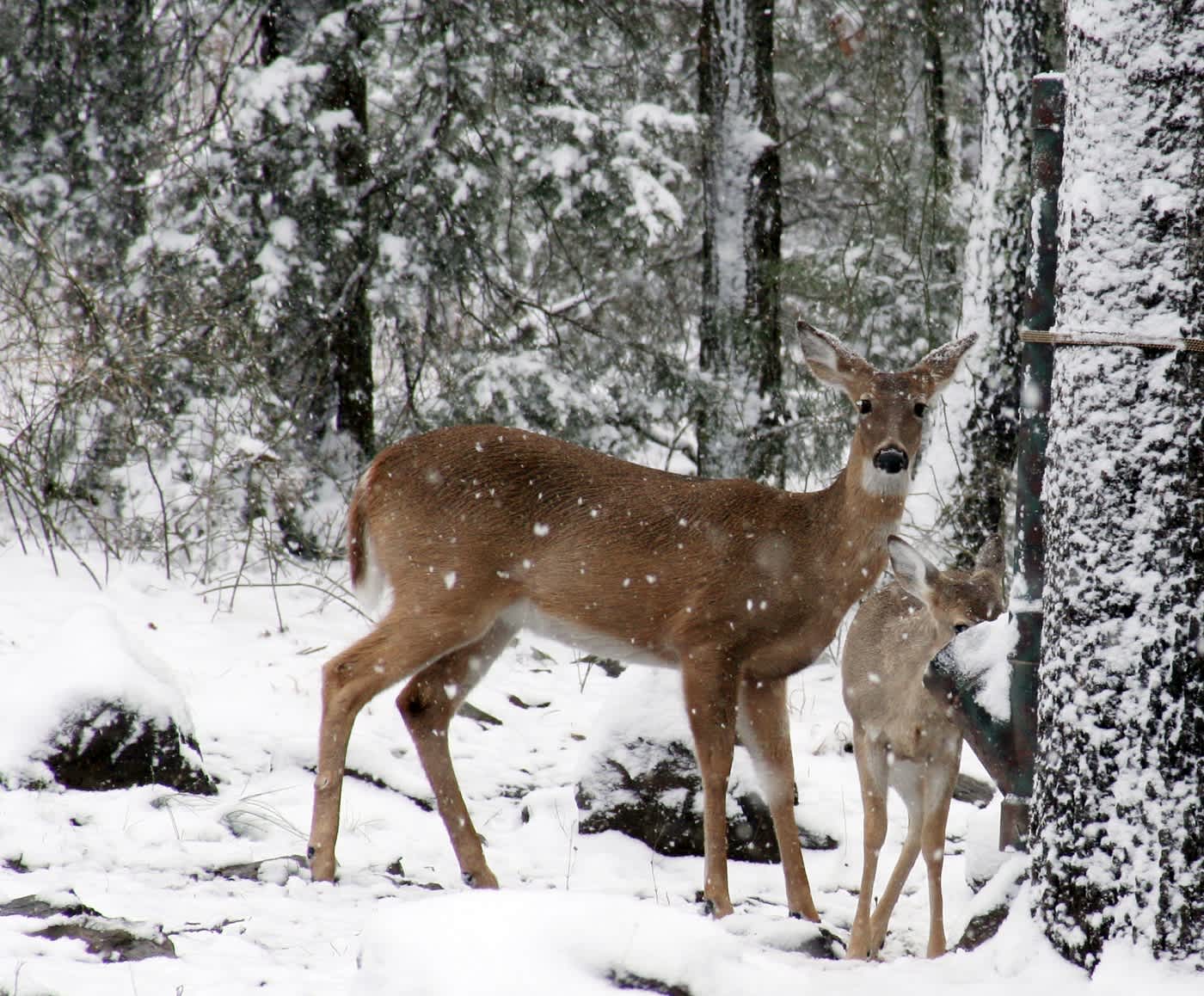The Perils of Improper Winter Deer Feeding: Small Herd Found Dead in New Hamsphire
OutdoorHub Reporters 03.26.15

Even when done properly, supplemental winter feeding can bring up many complications for starving deer. When done improperly, feeding deer could mean an agonizing death. The New Hampshire Fish and Game Department reported on Tuesday that a group of 12 deer had been found dead in South Hampton, likely as a result of “well-intentioned, but tragically fatal, supplemental feeding by local residents.”
Fish and Game biologists found the 12 deer in a wooded suburban area and field necropsises indicated that the animals had died from complications with human-provided food. Based on what was found in their stomachs, biologists say that the deer had been fed a variety of hay, corn, grain-based pellets, and other foods. Further study at a veterinary diagnostic lab found that the deaths were likely caused by enterotoxemia, which occurs when deer are suddenly introduced to a new food source that their stomachs cannot digest properly.

“This unfortunate incident highlights one of the many reasons New Hampshire Fish and Game urges the public not to feed deer,” the department stated in a press release. “Because deer are ruminants, they process food differently than other animals. They depend on microorganisms in their rumen (stomach) to aid in digestion. As a deer’s diet naturally and gradually changes with the seasons, so do the microorganisms which are required to help digest those foods. This gradual change in microorganisms can take several weeks.
“A rapid transition from a high fiber diet of natural woody browse to human-provided foods high in carbohydrates can cause a rapid change in stomach chemistry, disrupting the microorganisms present. This can reduce the deer’s ability to properly digest food and/or release toxins which are absorbed into the deer’s system, and, in severe cases, can cause death.”
In short, the introduction of new food builds up bacteria growth, causing the release of toxins that poison the deer. Eight of the dead animals found in South Hampton were discovered with what officials described as bloody diarrhea, a common symptom of this condition.
Wildlife experts caution residents to avoid feeding deer. Despite their good intentions, introducing new foods like hay, apples, corn. or human food can end very badly for deer who are already trying to adjust to winter conditions. During this time deer are relying heavily on woody browse such as buds and twigs. Feeding deer close to suburban areas could also lead to an increase in traffic accidents and bring predators close to home.
If you want to help out, some experts advise breaking out the chainsaw and putting more twigs and buds in reach for deer. You can learn more about emergency winter deer food in this article by the Quality Deer Management Association.

